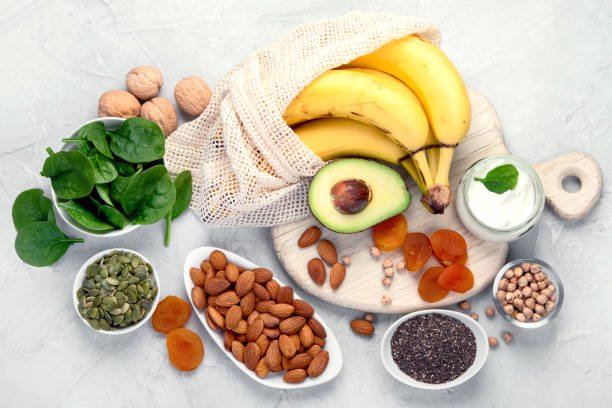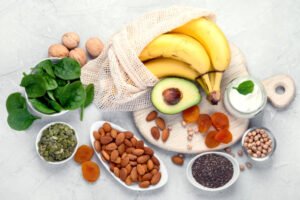Hey there! Are you curious about the amazing benefits and potential health risks of bananas? Look no further, because I’ve got you covered! Let’s explore why this delicious fruit is a favorite of many and what you should keep in mind while enjoying it.
Bananas are one of the most popular fruits worldwide, known for their appealing taste and nutritional value. They are rich in essential vitamins, minerals, and fiber, making them a healthy addition to your diet. However, like any food, bananas come with both benefits and risks. In this article, we’ll explore the nutritional content of bananas, their potential health benefits, and the risks associated with their consumption.
Nutritional information for bananas.
Did you know that bananas are a great source of important nutrients that are essential for good health? A medium-sized banana, which weighs about 118 grams, contains a variety of vitamins and minerals that your body needs. These nutrients are important for maintaining good health. Keep reading to learn more about the health benefits of bananas.
- Calories: 105
- Carbohydrates: 27 grams
- ber: 3 grams
- Protein: 1 gram
- Fat: 0.4 grams
- vitamin C: 17% of the Recommended Daily Allowance (RDA)
- Vitamin B6: 22% of the RDA
- – nganese: 16% of the RDA
- Potassium: 12% of the RDA
- Magnesium: 8% of the RDA
- Folate: 6% of the RDA
Health Benefits of Bananas
- 1. Heart Health Bananas are rich in potassium, which is essential for heart health. Potassium helps regulate blood pressure and prevent cardiovascular diseases.
- 2. Digestive Health: The fiber content in bananas promotes healthy digestion and helps prevent constipation.
- 3. Weight Management: Despite their sweetness, bananas can be part of a weight-loss diet. They are low in calories and high in fiber, which helps you feel full for longer.
- 4. Blood Sugar Control Bananas have a low to medium glycemic index (GI), which means they are less likely to cause spikes in blood sugar levels.
- 5. Exercise Performances: Bananas are a favorite among athletes due to their carbohydrate content, which provides a quick source of energy.
Health Risks of Bananas
1. Sugar Content: Bananas are relatively high in sugar compared to other fruits. While the natural sugars in bananas are healthier than refined sugars, people with diabetes or those watching their sugar intake should consume bananas in moderation.
2. Allergic Reactions: Some individuals may be allergic to bananas, experiencing symptoms such as itching, swelling, and difficulty breathing.
3. Gastrointestinal Issues: Eating unripe bananas can cause bloating, gas, and diarrhea in some people.
4. Medication Interactions Bananas contain compounds that can interact with certain medications, such as blood pressure medications. It’s important to consult with a healthcare provider if you are taking medications and considering adding bananas to your diet.
Conclusion
Bananas are a nutritious fruit that offers a range of health benefits. They are rich in essential vitamins and minerals, promote heart and digestive health, aid in weight management, and can improve exercise performance. However, it’s important to be mindful of their sugar content, potential for allergic reactions, and interactions with medications. Bananas can be a healthy addition to a balanced diet when consumed in moderation.
FAQs
FAQ 1: Are bananas good for weight loss?
Bananas can be part of a weight-loss diet due to their low calorie and high fiber content, which helps keep you full for longer.
FAQ 2: Can bananas help with digestion?
Yes, bananas are rich in fiber, which promotes healthy digestion and can help prevent constipation.
FAQ 3: Are there any risks associated with eating bananas?
While bananas offer numerous health benefits, they also come with some risks, such as potential allergic reactions and gastrointestinal issues in some people.
FAQ 4: How many bananas can you eat in a day?
The number of bananas you can safely eat daily depends on your individual dietary needs and overall health. It’s best to consult with a healthcare provider or a nutritionist for personalized advice.
FAQ 5: Can bananas be part of a diabetic diet?
People with diabetes can include bananas in their diet, but they should be careful and eat them in moderation. This is because bananas contain natural sugars that can cause a spike in blood sugar levels if eaten in large amounts. It is important for people with diabetes to check their blood sugar levels regularly and to seek advice from a healthcare professional before making any changes to their diet. By including bananas as part of a balanced meal plan, people with diabetes can enjoy their delicious taste and nutritional benefits while keeping their blood sugar levels in check.
Bananas can definitely be a part of a diabetic diet. However, people with diabetes need to keep a close eye on their blood sugar levels and consume bananas in moderation. This is because bananas contain natural sugars that can cause a spike in blood sugar levels when consumed in excessive amounts. Therefore, it is recommended to include bananas as a part of a balanced meal plan and consult a healthcare professional for personalized dietary recommendations.

